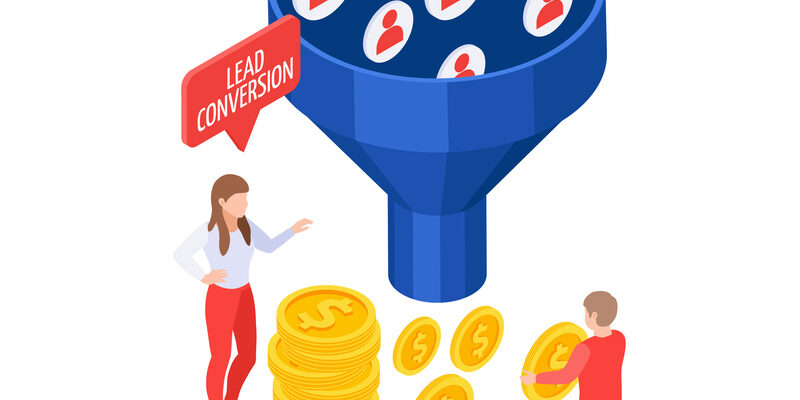Introduction
In the B2B sector, generating leads is more than just an essential marketing activity—it’s a pivotal component of the sales process that directly impacts the bottom line. Effective B2B lead generation requires a nuanced approach, tailored to the complex decision-making processes characteristic of business clients. This guide explores innovative strategies for B2B lead generation, providing insights into how businesses can refine their approaches to attract quality leads and convert them into loyal customers.
Comprehensive Strategies for B2B Lead Generation
1. Content Marketing
Content marketing in the B2B lead generation involves creating and distributing valuable, relevant, and consistent content to attract and retain a clearly-defined audience. The goal is to establish thought leadership and nurture prospective clients through informative content.
Implementing Content Marketing:
- Educational Content: Develop in-depth articles, whitepapers, and case studies that address specific industry problems or introduce novel solutions.
- Webinars and Online Workshops: Host interactive sessions that not only educate but also collect lead information through registrations.
- Content Personalization: Tailor content to the specific needs and stages of your target audience’s buying journey to increase engagement and conversion rates.
2. SEO and Inbound Marketing
Search engine optimization (SEO) and inbound marketing are crucial for attracting leads naturally through online content. By optimizing your online presence, you can draw potential customers to your website when they are seeking solutions to their business problems.
SEO and Inbound Tactics:
- Keyword Strategy: Focus on long-tail keywords that reflect the specific queries of B2B buyers.
- On-Site Optimization: Ensure that your website is optimized for search engines, with a particular focus on loading speed, mobile-friendliness, and user-friendly navigation.
- Quality Backlinks: Obtain backlinks from reputable industry sites to enhance your site’s authority and search engine ranking.
3. Social Media Engagement
While B2C brands often use social media for broad audience engagement, B2B companies can leverage these platforms for targeted networking and relationship building.
Social Media Strategies for B2B:
- LinkedIn Marketing: Utilize LinkedIn for content sharing, networking, and participating in industry-specific groups to generate leads.
- Twitter Thought Leadership: Share insights, trends, and company news to establish industry authority and engage with other businesses.
- Social Listening: Monitor social conversations about your industry to identify potential leads and engage them with helpful content and solutions.
4. Email Marketing Automation
Email marketing remains a powerful tool in B2B for nurturing leads and moving them through the sales funnel. Automation can enhance the efficiency and effectiveness of these campaigns.
Advanced Email Marketing Techniques:
- Segmented Campaigns: Use data to segment your audience based on their industry, role in the company, or engagement level, and tailor the email content accordingly.
- Lead Scoring: Implement a lead scoring system to prioritize leads based on their engagement and likelihood to convert, focusing your efforts on the most promising prospects.
- Drip Campaigns: Design automated email sequences that nurture leads over time, providing them with valuable information at each stage of their decision-making process.
5. Targeted Paid Advertising
Paid advertising can be highly effective for B2B organizations, especially when it’s highly targeted. Platforms like LinkedIn allow for precise targeting based on professional criteria.
Paid Advertising Approaches:
- Retargeting: Use retargeting campaigns to keep your brand in front of potential leads who have visited your website but have not yet converted.
- Account-Based Marketing (ABM) Ads: Tailor your advertising campaigns to engage specific high-value companies or decision-makers within those companies.
- Conversion Tracking: Implement robust tracking mechanisms to measure the effectiveness of your ads and optimize based on performance data.
Measuring and Optimizing B2B Lead Generation
Analytics and Adaptation
Regular analysis of lead generation strategies is crucial to understand their effectiveness and identify areas for improvement. Utilize analytics to track key performance indicators such as lead quantity, lead quality, and conversion rates.
Optimization Strategies:
- A/B Testing: Regularly test different aspects of your marketing campaigns, from email subject lines to landing page designs, to determine what works best.
- Feedback Loops: Encourage feedback from leads and customers to refine your marketing approaches and better meet their needs.
- Continuous Learning: Stay updated on the latest B2B marketing trends and technologies to keep your strategies fresh and effective.
Conclusion
Effective B2B lead generation requires a multifaceted approach that combines traditional strategies with innovative digital tactics. By leveraging content marketing, SEO, social media, email automation, and targeted paid advertising, businesses can attract high-quality leads and significantly improve their conversion rates. Continuous measurement and optimization of these strategies ensure sustained success in the ever-evolving B2B marketplace.
FAQs
Q1: How can small B2B businesses compete with larger companies in lead generation? A1: Small businesses can focus on niche markets, offer personalized service, and leverage local SEO and targeted content strategies to compete effectively against larger firms.
Q2: What is the biggest challenge in B2B lead generation today? A2: One of the biggest challenges is cutting through the noise of increased online content and numerous competitors to reach and engage the right audience.
Q3: Are trade shows and conferences still effective for B2B lead generation? A3: Yes, while digital strategies are essential, in-person events like trade shows and conferences are highly effective for networking and building relationships, especially in industries that value personal connections.
Q4: How important is mobile optimization for B2B websites? A4: Extremely important, as more business professionals use mobile devices for research and communication. A mobile-optimized website ensures a better user experience and can improve lead generation efforts.
Q5: Can B2B sales cycles be shortened with digital marketing? A5: Digital marketing can help shorten sales cycles by providing leads with faster and more direct access to information, automating follow-ups, and maintaining constant engagement.











